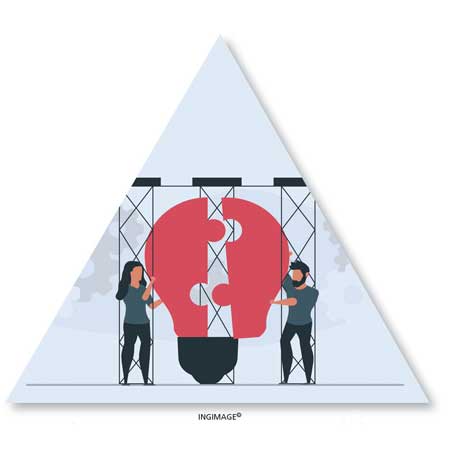WORK-LIFE BALANCE
MAKE THE CORRECT CHOICES
Aim for healthier work and personal lives
BY Jayashantha Jayawardhana
Far too many executives today find it difficult to manage the work-life balance. It seems that building a successful corporate career and raising a family well are zero-sum games, and one has to be sacrificed for the other. While work occupies a large portion of our waking hours and is a means of living, life is much larger than work… at least, for the majority – if not for all.
Research suggests that overwork isn’t good for either employees or their employers in the long run. Working extended hours with unattended family concerns nagging you can easily stress you out unless you’re genuinely passionate about your work.
However, people with an intense passion for their jobs aren’t very common. It’s true in the case of a handful of top professionals such as scientists, athletes, artistes and filmmakers who can’t afford to look at the clock every half-hour or take regular breaks. But these people are typically outliers – and having achieved a measure of success, they don’t need to face the daily grind.
Then why do so many executives put in such long hours at work? Most of them do so not because they want to but as they have to. Some of them can’t differentiate between what is urgent and what’s important, and are thereby unable to prioritise and organise their work.
There are some who aren’t well skilled in their jobs, and take hours to do what can be accomplished in minutes if they were properly equipped with the right skills and knowledge.
Some workplaces are so understaffed that the few people who are there have to work doubly long hours. Others stay longer to impress their superiors.
Then there are those who don’t belong to the aforementioned social or intellectual elite. But they are well equipped with the right knowledge and skills, and their work is reasonably organised.
Some workplaces are adequately staffed with employees who’re qualified and talented. They don’t need to impress their superiors by working long hours but do so simply because the habit is deeply ingrained in their psyches. So what does it take for them to free themselves of these unhealthy patterns and achieve a more fulfilling work-life balance?
To explore this question, researchers Ioana Lupu and Mayra Ruiz-Castro conducted almost 200 in-depth interviews with 78 professionals from the London offices of a global law firm and accounting business.
They spoke with an equal number of men and women, and most of the interviewees were between 30-50 years with at least one dependent child, and were in either middle or senior management positions.
Based on their research findings, Lupu and Ruiz-Castro wrote on the Harvard Business Review (HBR) website that achieving a better balance between professional and personal priorities boils down to a combination of reflexivity or questioning assumptions to increase self-awareness and intentional role redefinition.
They also note that this is a cycle rather than a onetime fix. And it’s a cycle that we must engage in continuously as our circumstances evolve and priorities shift. It consists of five distinct steps…
REFLECT Sit back and reflect on why exactly you put in such long hours. Ask yourself: “What is currently causing me stress, imbalance or dissatisfaction?” “How are these circumstances affecting performance and engagement with my job?”
Stop here and consider the changes you must make.
CONSIDER Once you’ve taken stock of the current situation, pay close attention to your real feelings. Do you feel energised, upbeat and satisfied? Or do you feel embittered and enervated?
A rational understanding of the decisions and priorities driving your life is important but equally necessary is emotional reflexivity – the capacity to see how a situation is making you feel. Before you can determine any changes that you must make, you have to decode your true emotions.
PRIORITISE Not everything that’s so urgent is necessarily important. Perhaps it’s neither urgent nor important. Consider the opportunity cost or what you will have to forego as a result of having to work long hours on project X. See what really matters and reprioritise accordingly.
PRIORITIES Before figuring out solutions, mull over the aspects of your work and life that can be changed to better align with your priorities. Are there aspects of your job that you’d like to change? How much time would you like to spend with your family or on hobbies?
CHANGES We know that neither ideas nor words can move mountains in spite of the quantum of passion involved. So you have to follow the steps listed above carefully, and then take action. It could be an explicit public change or some private transformation known only to you. It’s simply a matter of preference. Then career and family needn’t be zero-sum games.




